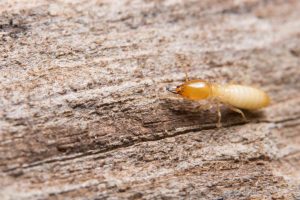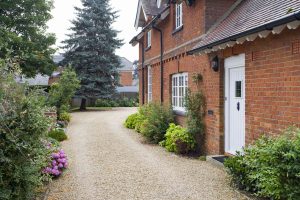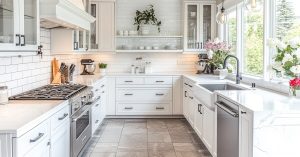Membrane doors are a contemporary and versatile option for homeowners and interior designers alike. These doors are the functional barriers and aesthetic statements in home decor and architectural design. Membrane gates have gained significant recognition in recent years due to their seamless blend of style, durability, and affordability. In this blog, we will explore the various aspects of these doors and examine their unique features, advantages, and the factors that sets them apart from other doors. Let’s unlock the beauty and practicality of membrane doorways and discover why they are becoming an increasingly popular choice for modern living spaces.
What is a Membrane Door?
A membrane gate is a robust and visually appealing door panel created by laminating various materials. It consists of a high-density fiberboard (HDF) core, which provides stability and durability. To enhance its aesthetic appeal, a decorative layer made of vinyl, PVC, or laminate sheets is added, offering a wide range of design options. A thermoplastic membrane film, typically made of PVC or PET, is applied over the HDF core and decorative layer, creating a smooth and uniform appearance. What sets membrane gates apart is their unique combination of HDF and solid flush doors, offering durability and stability. Unlike ordinary wood doors, membrane gates are resistant to shrinking, swelling, cracking, and joint separation, thanks to their polyvinyl chloride membrane coating. For more information, it is advisable to consult a reputable membrane door supplier.
membrane doors
Enquire Now for Wooden Doors
Advantages of Membrane Doors:
Membrane doors are gaining popularity as a preferred choice due to their numerous advantages.
Membrane gateways are affordable compared to wood or metal doors, making them a cost-effective option for budget-conscious individuals or projects.
These doors offer a range of design options, including various colors, patterns, textures, and finishes allowing for greater flexibility in matching different interior styles and personal preferences.
These doors are relatively easy to clean and maintain. The smooth surface of the membrane material is resistant to stains and can be easily wiped clean with a damp cloth, requiring minimal effort for upkeep.
These doors are resistant to warping, unlike solid wood doors that can warp due to moisture or temperature changes.
compared to wooden doors these are light in weight making them easier to handle during installation and reducing the strain on hinges and other hardware components.
These doors are used for various applications, including residential, commercial, and interior spaces. They are suitable for bedrooms, kitchens, bathrooms, offices, and other areas where aesthetics and affordability are important factors.
These doors are less susceptible to pest infestations, such as termites or wood-boring insects, which can damage solid wood doors.
These doors have better moisture resistance compared to wooden doors. The membrane material is less prone to absorbing moisture, reducing the risk of warping, swelling, or rotting in humid or wet environments.
These doors offer a consistent and uniform appearance, as the membrane material covers the entire surface of the door. This can contribute to a cohesive and seamless look in interior design.
-
Environmentally friendly options:
Some manufacturers offer these doors made from eco-friendly materials or using sustainable production processes. Opting for environmentally friendly options can help reduce the environmental impact of door manufacturing.
Disadvantages of Membrane Doors:
While membrane entryways are highly resistant to weather and pollutants, it is important to be aware of a few considerations and exercise caution.
Membrane entryways are generally less durable than metal or wood doors. The thin layer of membrane material, typically made of PVC or laminate, is prone to tearing, scratching, or peeling over time, particularly with heavy use.
Repairing a damaged membrane door can be difficult. Unlike wooden doorways that can be sanded and refinished, or metal doors that can be welded or repainted, these doors often require the replacement of the entire membrane sheet or the entire door itself.
These doors can be sensitive to moisture if not properly sealed or maintained. Excessive exposure to moisture or humidity can cause warping, bubbling, or delamination of the membrane, compromising the door’s appearance and structural integrity.
-
Inferior Sound Insulation:
These doors generally provide lower sound insulation than metal or wood doors. The thin membrane material lacks the density and thickness necessary to effectively block out noise, resulting in reduced privacy and soundproofing capabilities.
These doors have lower fire resistance compared to wood or metal doors. The PVC and laminate materials used in these doors are combustible and can contribute to the spread of fire, potentially compromising the safety of occupants and property.
-
Environmental Considerations:
Membrane gates often contain synthetic materials, such as PVC, derived from non-renewable resources. The production and disposal of these doors can have negative environmental impacts. Additionally, the proper disposal of these doors may require special handling to minimize environmental harm.
While membrane entryways offer a variety of design choices, customization options may be limited compared to aluminium doors. The Manufacturers typically predetermine the design and color choices, making it challenging to match specific interior styles or personal preferences. Check out WFM to find the best membrane door suppliers for you.
Conclusion
Membrane doors have gained significant popularity among homeowners and businesses for their distinct composition and beneficial features. With a strong HDF core, decorative layers, and a thermoplastic membrane film, these doors offer a compelling combination of durability, visual appeal, and resistance to various environmental factors. They provide an excellent alternative to traditional solid flush doors and offer advantages such as stability, customization options, and resistance to warping, shrinking, and cracking. Whether it’s for residential or commercial purposes, membrane gates have proven to be a reliable and stylish choice for those seeking long-lasting and visually appealing door solutions.
Read the full article here














